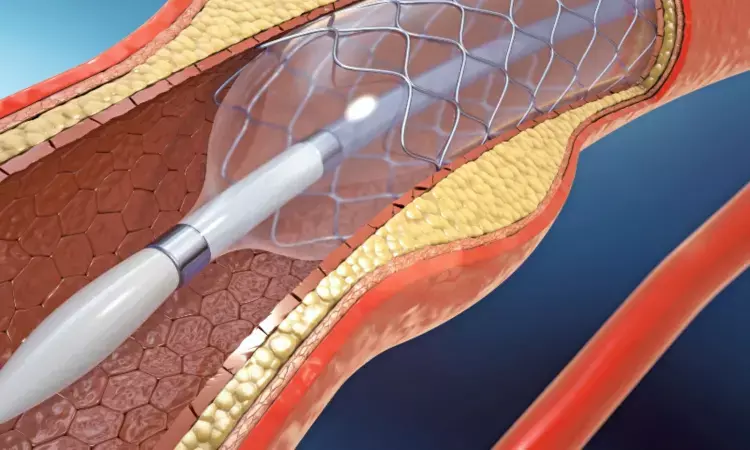- Home
- Medical news & Guidelines
- Anesthesiology
- Cardiology and CTVS
- Critical Care
- Dentistry
- Dermatology
- Diabetes and Endocrinology
- ENT
- Gastroenterology
- Medicine
- Nephrology
- Neurology
- Obstretics-Gynaecology
- Oncology
- Ophthalmology
- Orthopaedics
- Pediatrics-Neonatology
- Psychiatry
- Pulmonology
- Radiology
- Surgery
- Urology
- Laboratory Medicine
- Diet
- Nursing
- Paramedical
- Physiotherapy
- Health news
- Fact Check
- Bone Health Fact Check
- Brain Health Fact Check
- Cancer Related Fact Check
- Child Care Fact Check
- Dental and oral health fact check
- Diabetes and metabolic health fact check
- Diet and Nutrition Fact Check
- Eye and ENT Care Fact Check
- Fitness fact check
- Gut health fact check
- Heart health fact check
- Kidney health fact check
- Medical education fact check
- Men's health fact check
- Respiratory fact check
- Skin and hair care fact check
- Vaccine and Immunization fact check
- Women's health fact check
- AYUSH
- State News
- Andaman and Nicobar Islands
- Andhra Pradesh
- Arunachal Pradesh
- Assam
- Bihar
- Chandigarh
- Chattisgarh
- Dadra and Nagar Haveli
- Daman and Diu
- Delhi
- Goa
- Gujarat
- Haryana
- Himachal Pradesh
- Jammu & Kashmir
- Jharkhand
- Karnataka
- Kerala
- Ladakh
- Lakshadweep
- Madhya Pradesh
- Maharashtra
- Manipur
- Meghalaya
- Mizoram
- Nagaland
- Odisha
- Puducherry
- Punjab
- Rajasthan
- Sikkim
- Tamil Nadu
- Telangana
- Tripura
- Uttar Pradesh
- Uttrakhand
- West Bengal
- Medical Education
- Industry
Paclitaxel-coated balloon effective for managing coronary in-stent restenosis among patients undergoing PCI: JAMA

USA: A multicenter randomized trial of 600 patients (AGENT IDE) designed to support US regulatory approval, has shown treatment with a paclitaxel-coated balloon to be an effective treatment strategy for managing coronary in-stent restenosis.
The study, published in the Journal of the American Medical Association (JAMA), showed a significantly lower target lesion failure in the paclitaxel-coated balloon group (17.9%) versus the uncoated balloon group (28.6%). Additionally, target vessel myocardial infarction (MI) and ischemia-driven target lesion revascularization were also lower after treatment with a paclitaxel-coated balloon.
"The trial is the largest randomized clinical trial to date examining the safety and efficacy of a drug-coated balloon in coronary in-stent restenosis patients, and the first trial of coronary drug-coated balloons to be conducted in the United States," the researchers wrote.
Drug-coated balloons were designed for administering antiproliferative agents to coronary lesions without using metallic stents. They developed an alternative treatment for coronary artery disease, specifically for in-stent restenosis, where the introduction of additional layers of stent that further decrease lumen area may be undesirable. However, none have been previously evaluated or approved for use in coronary circulation in the United States.
Against the above background, Robert W. Yeh, Beth Israel Deaconess Medical Center, Boston, Massachusetts, and colleagues evaluate whether a paclitaxel-coated balloon is superior to an uncoated balloon in patients with in-stent restenosis undergoing percutaneous coronary intervention (PCI).
For this purpose, the researchers performed a multicenter randomized clinical trial, AGENT IDE, enrolling 600 patients with in-stent restenosis (lesion length <26 mm and reference vessel diameter >2.0 mm to ≤4.0 mm) at 40 centers across the US between 2021 and 2022. One-year clinical follow-up completed on October 2, 2023. Among 600 randomized patients (mean age, 68 years; 26.2% females), 574 completed 1-year follow-up.
Participants were randomized in a 2:1 ratio to undergo treatment with a paclitaxel-coated (n = 406) or an uncoated (n = 194) balloon.
The primary endpoint of 1-year target lesion failure (defined as the composite of ischemia-driven target lesion revascularization, cardiac death, or target vessel–related MI) was tested for superiority.
The researchers reported the following findings:
- The primary endpoint at one year occurred in 17.9% of the paclitaxel-coated balloon group vs 28.6% in the uncoated balloon group, meeting the criteria for superiority (hazard ratio [HR], 0.59).
- Target lesion revascularization (13.0% versus 24.7%; HR, 0.50) and target vessel–related myocardial infarction (5.8% versus 11.1%; HR, 0.51) occurred less frequently among patients treated with a paclitaxel-coated balloon.
- The rate of cardiac death was 2.9% versus 1.6% (HR, 1.75) in the coated vs uncoated balloon groups, respectively.
In conclusion, a paclitaxel-coated balloon was superior to an uncoated balloon concerning the composite endpoint of target lesion failure in patients undergoing coronary angioplasty for in-stent restenosis.
"The findings showed that paclitaxel-coated balloons are an effective treatment option for patients with coronary in-stent restenosis," the investigators concluded.
Reference:
Yeh RW, Shlofmitz R, Moses J, et al. Paclitaxel-Coated Balloon vs Uncoated Balloon for Coronary In-Stent Restenosis: The AGENT IDE Randomized Clinical Trial. JAMA. Published online March 09, 2024. doi:10.1001/jama.2024.1361
Dr Kamal Kant Kohli-MBBS, DTCD- a chest specialist with more than 30 years of practice and a flair for writing clinical articles, Dr Kamal Kant Kohli joined Medical Dialogues as a Chief Editor of Medical News. Besides writing articles, as an editor, he proofreads and verifies all the medical content published on Medical Dialogues including those coming from journals, studies,medical conferences,guidelines etc. Email: drkohli@medicaldialogues.in. Contact no. 011-43720751


